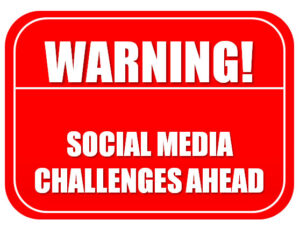If you mention the phrase “social media” in front of senior execs, don’t be surprised if the color drains from their faces. It’s a Gen Y-dominated world that many business managers just don’t get. Worse, there is a lot of fear about what can and can’t be said with respect to your employer. How do you protect your corporate brand — one you’ve spent years building — in an age when word of mouth can go viral worldwide in hours? Maybe we can learn a lesson or two from the recent kerfuffle at Apple.
In early November, word hit the Net that Apple had fired an employee for disparaging remarks about Apple stores in a “private” posting. The post was shown to the store manager who let the employee go on the spot. Key issue: There is no privacy on the Internet. Digital bits are now incredibly interconnected. Even without the intrusive reach of Google’s search spiders (which can be blocked), it’s just as easy, maybe easier, to copy-paste than it is to head to the water cooler to spread gossip. So if you want to keep something private, keep it to yourself.
In a related article on ZDnet, author Charlie Osborne sums up the dilemma:
Companies can often be left in difficult territory when social media rules are not defined. A recent Cisco study suggests that amongst the Generation Y, two-thirds of college students will ask about social media policies during a job interview, with over half not accepting a job that bans social media in the workplace.
Social media is a tricky one to control. Anybody could copy and paste, and then tag or not, if one were to be clandestine about it and repost a comment; something which in itself leads to the spread of viral activity.
Many have been caught out by social media, particularly when it comes down to commenting on their jobs or colleagues. It was only during the summer where the U.S. National Labor Relations Board had to contend with a series of cases where employees were fired over Facebook.
So what can we learn from Apple, who is savvier than most, re social media guidelines? First, read their guidelines. When you go to write your own, start with a template from one of the companies that understands this environment. Then modify to fit your organization. The situation over the fired Apple employee resulted in Apple’s social media guidelines going public. A bit of irony there.
ZDnet sums it up well.
In general, what employees do in their own time is their choice, but Apple states in its guides that: The lines between public and private, and personal and professional are blurred in online social networks. Respect your audience and your co-workers. This includes not only the obvious (no ethnic slurs, personal insults, obscenity, etc.) but also topics that may be considered offensive or inflammatory. In sum, use your best judgment.
Some interesting points include:
Employees may run their own websites, but are not permitted to discuss Apple on that website.
No speculating on rumours is allowed. This includes confirming or denying any information concerning new products, Apple regulations or services.
Blogs, wikis, social networks and other tools should not be used for communication among fellow employees. This regulation goes further in stating that differences shouldn’t be aired online, co-workers should not be discussed without their permission, and any images relating to other staff members cannot be posted anywhere without their express permission.
Staff are not permitted to post messages or commentary on any Mac or Apple related websites; whether they identify themselves as Apple employees or not.
If you identify yourself as an Apple employee, you connect yourself with co-workers, products, and the global brand itself so conduct online needs to be consistent with Apple policies.
Apple’s full business conduct policy applies to employees and any who do business with Apple retrospectively. Apple retains the right to discipline (up to termination of employment), or cut ties of any that do not comply with these regulations.
Customer privacy is viewed as a priority for Apple as a brand. Any information concerning customers is not to be discussed online in any circumstance. Apple employees are also not permitted to contact customers for social reasons or soliciting outside of business.
We can’t say this enough — BEFORE you launch into the world of social media, BE PREPARED:
Have your strategy in place
Know what resources you’ll be relying on
Have an editorial calendar of who will be posting on what topics and where (blog vs LinkedIn vs Twitter vs Slideshare)
Prepare corporate guidelines for social media.
You’ve been warned!





